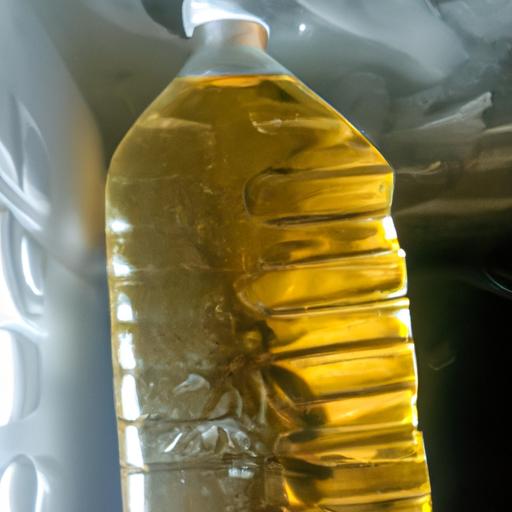Does Cooking Vegetables Reduce Nutrients?

Introduction
Have you ever wondered if cooking vegetables affects their nutritional value? We all know that vegetables are packed with essential vitamins and minerals, but does the cooking process strip away these valuable nutrients? Today, we will delve into the topic and explore the impact of cooking on the nutritional content of vegetables.
The Significance of Cooking Vegetables
Cooking has been a fundamental aspect of human civilization for centuries. It not only enhances the flavor and texture of food but also plays a crucial role in making certain vegetables safe to consume. By subjecting vegetables to heat, we can eliminate harmful bacteria and parasites, making them more palatable and reducing the risk of foodborne illnesses.
Overview of the Main Keyword: “does cooking vegetables reduce nutrients“
Now, let’s focus on the main keyword of our discussion: “does cooking vegetables reduce nutrients.” This query arises from concerns that the cooking process may lead to a loss of essential vitamins, minerals, and other beneficial compounds present in vegetables. While there is some truth to this, the overall impact of cooking on nutrient retention is influenced by various factors.
In the upcoming sections, we will examine the impact of cooking on vegetable nutrients, discuss key nutrients affected by cooking, explore ways to retain nutrients while cooking vegetables, uncover exceptions where cooking enhances nutrient availability, and conclude with a balanced perspective on this topic.
So, let’s embark on this journey together as we unravel the mysteries surrounding cooking vegetables and its effect on their nutritional value. Are you ready to discover the truth behind this age-old question? Let’s dive in!
The Impact of Cooking on Vegetable Nutrients
A. Potential Loss of Nutrients during Cooking
When we subject vegetables to heat during the cooking process, there is a possibility of nutrient loss. Water-soluble vitamins, such as vitamin C and B vitamins, are particularly vulnerable to degradation when exposed to high temperatures. These vitamins can leach into the cooking water or break down due to heat, resulting in reduced nutrient content in the cooked vegetables.
B. Factors Affecting Nutrient Retention
The extent of nutrient loss during cooking depends on several factors. The cooking method itself plays a significant role. Boiling vegetables in large amounts of water can lead to greater nutrient loss compared to methods like steaming or stir-frying. Additionally, the duration of cooking and the intensity of heat can influence nutrient retention. Overcooking or using high heat for prolonged periods may further diminish the nutritional value of the vegetables.
C. Changes in Nutrient Bioavailability Post-Cooking
While cooking can lead to some nutrient loss, it’s important to consider the concept of nutrient bioavailability. Cooking vegetables can actually enhance the availability of certain nutrients. For instance, the heat from cooking can break down cell walls, making nutrients more accessible for our bodies to absorb and utilize. This increased bioavailability may compensate for the potential nutrient loss during cooking.
In the next section, we will delve deeper into the specific nutrients that are affected by cooking. Join me as we explore the impact of cooking on water-soluble vitamins, heat-sensitive nutrients, and mineral content in vegetables. Let’s uncover the truth behind these changes and how they impact our overall nutrient intake.
Retaining Nutrients While Cooking Vegetables
A. Introduction to Various Cooking Methods and Their Impact on Nutrient Retention
When it comes to cooking vegetables, the choice of cooking method can greatly influence the retention of nutrients. Different cooking methods have varying effects on the nutritional content of vegetables. Let’s explore some commonly used cooking techniques and their impact on preserving nutrients.
1. Steaming: Steaming vegetables involves cooking them using the steam generated by boiling water. This gentle cooking method helps retain water-soluble vitamins, such as vitamin C and B vitamins, which are prone to degradation when exposed to high heat. Steaming also helps maintain the vibrant colors of vegetables, making them visually appealing.
2. Stir-Frying: Stir-frying involves quickly cooking vegetables in a small amount of oil over high heat. This method preserves the texture, flavor, and color of vegetables while minimizing nutrient loss. Since stir-frying requires less cooking time, it helps retain water-soluble vitamins and heat-sensitive nutrients.
3. Roasting and Baking: Roasting and baking vegetables in the oven at moderate temperatures can enhance their natural flavors while maintaining nutrient content. This method is particularly beneficial for root vegetables like potatoes and carrots, as it caramelizes their natural sugars, resulting in deliciously sweet and nutritious dishes.
B. Tips on Minimizing Nutrient Loss During Cooking
To minimize nutrient loss while cooking vegetables, consider the following tips:
1. Cut vegetables into larger pieces: Larger pieces take longer to cook, reducing the exposure to heat and minimizing nutrient loss.
2. Use minimal water: When boiling vegetables, use the minimum amount of water necessary to prevent excessive leaching of water-soluble vitamins and minerals.
3. Opt for shorter cooking times: Overcooking can lead to substantial nutrient loss. Cook vegetables until they are tender but still retain a slight crunch to preserve their nutritional value.
C. Emphasizing the Importance of Cooking Techniques that Preserve Nutrients
While it’s true that cooking can cause some nutrient loss, it’s important to remember that certain cooking techniques can actually enhance the bioavailability of nutrients, making them easier for our bodies to absorb. It’s all about finding the right balance between preserving nutrients and maximizing their availability.
By choosing cooking methods that retain the nutritional integrity of vegetables, we can enjoy the benefits of cooked vegetables while still obtaining essential vitamins, minerals, and other valuable compounds. So, let’s explore these techniques and savor the goodness of cooked vegetables without compromising their nutritional value.
Exceptions: Cooking Enhancing Nutrient Availability
A. Certain Nutrients More Bioavailable After Cooking
When it comes to nutrient availability, cooking can actually enhance the bioavailability of certain nutrients in vegetables. While cooking may lead to the loss of some vitamins and minerals, it can also make other nutrients more accessible to our bodies. For instance, the heat applied during cooking can break down the cell walls of vegetables, making it easier for our digestive system to extract nutrients.
One prime example is lycopene, a powerful antioxidant found in tomatoes. Research shows that cooking tomatoes actually increases the bioavailability of lycopene, making it easier for our bodies to absorb and benefit from this valuable nutrient. Similarly, cooking carrots can enhance the availability of beta-carotene, a precursor to vitamin A, which supports healthy vision and immune function.
B. Cooking and the Breakdown of Anti-Nutrients
Another fascinating aspect of cooking is its ability to break down anti-nutrients found in certain vegetables. Anti-nutrients are compounds that can hinder the absorption of nutrients by our bodies. While these compounds serve a protective role for plants, they can create challenges for human digestion.
Cooking methods such as boiling, steaming, or fermentation can help neutralize or reduce the levels of anti-nutrients, making the nutrients in vegetables more bioavailable. For example, cooking legumes like beans or lentils can significantly reduce the levels of phytic acid, an anti-nutrient that can hinder the absorption of minerals like iron and zinc.
By employing appropriate cooking techniques, we can unlock the hidden potential of certain vegetables, making their nutrients more accessible and beneficial for our overall health.
In the next section, we will draw our conclusions and provide a summary of the impact of cooking on vegetable nutrients. Stay tuned to unveil the key takeaways from our exploration!
Conclusion
Throughout this exploration of the impact of cooking on vegetable nutrients, we have gained valuable insights into the effects of heat on the nutritional content of our beloved vegetables. While it is true that cooking can lead to some nutrient loss, the overall picture is more nuanced.
We’ve learned that water-soluble vitamins, such as vitamin C and B vitamins, are susceptible to degradation when exposed to heat and water. Heat-sensitive nutrients like folate and vitamin B6 can also be affected by cooking methods that involve high temperatures or prolonged cooking times. Additionally, minerals can leach out into cooking water, resulting in some loss during the cooking process.
However, it’s important to note that cooking can also have positive effects on nutrient availability. Certain nutrients become more bioavailable after cooking, and cooking can help break down anti-nutrients that hinder nutrient absorption. By adopting appropriate cooking techniques, such as steaming, stir-frying, or microwaving, we can minimize nutrient loss while enhancing nutrient bioavailability.
In conclusion, it is crucial to strike a balance between consuming raw and cooked vegetables to optimize nutrient intake. Both raw and cooked vegetables offer unique benefits, and incorporating a variety of both into our diets ensures a diverse array of nutrients. So, embrace the art of cooking while also savoring the goodness of raw vegetables to reap the full nutritional benefits they have to offer.
Remember, cooking vegetables does alter their nutrient content, but with knowledge and mindful cooking practices, we can ensure we’re getting the most out of our veggies. Let’s continue to explore and experiment in the kitchen, finding delicious ways to enjoy the incredible nutrition that vegetables provide.
Conclusion: So above is the Does Cooking Vegetables Reduce Nutrients? article. Hopefully with this article you can help you in life, always follow and read our good articles on the website: cook.mahjong-gratuit.net




